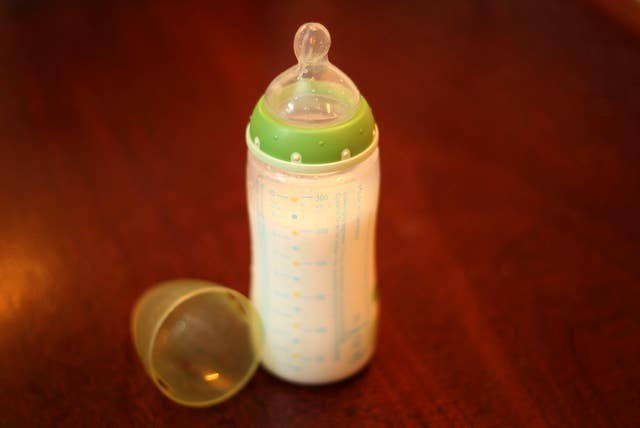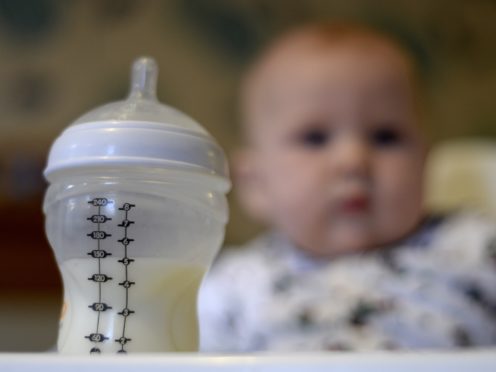Almost a third of local health bodies have broken international guidelines on relationships with infant formula companies, it has been claimed.
A total of 59 out of 195 Clinical Commissioning Groups (CCGs) in England had recorded a breach, such as payment or sponsorship from an infant formula company, according to an investigation by Channel 4’s Dispatches.
The code of practice, introduced by the World Health Organisation (WHO), states that doctors and medical organisations should not accept payments from formula companies.
The measures are intended to protect breastfeeding and regulate the marketing of breast milk substitutes.
Dispatches contacted every CCG in England – the bodies which spend local NHS money – and found 30% had recorded at least one breach of the WHO guidance since 2014.
In Wales, five out of the seven local health boards had recorded a breach, the investigation found.
Professor Anthony Costello, a former director at WHO, told Dispatches: “I think it’s outrageous.
“If you’re a company and you want to promote your products, you want to reach the people who are most influential.
“So that will be paediatricians. It will be dieticians. It will be nurses, midwives, health visitors.
“Companies are now right in the NHS and that is extremely concerning.”

The British Medical Journal announced on Monday that it will stop carrying advertisements for breast milk substitutes in its journals, to “support the WHO code, actively promote breastfeeding, and campaign against industry influence in this area”.
Dr Laura de Rooy, a consultant neonatologist at St George’s Hospital, London, believes that some doctors or healthcare professionals may be promoting certain branded milk products.
“It’s important to remember that some of those healthcare professionals have been through training events or training days that are sponsored by formula milk companies,” she told Dispatches.
“And so all those training days are not necessarily providing those healthcare professionals with unbiased information.
“The other really important point is that if there is advertising of those brands to those healthcare professionals, paediatricians, they are more likely to prescribe those brands to you.
“And so even the advertising that is directed at a scientific audience, a paediatrician audience, can be misleading.”

The BMJ said existing contracts would be honoured, but the last infant formula adverts will appear later this year.
Fiona Godlee, editor-in-chief of the BMJ, said : “Our objective is not to drive an anti-formula campaign, as we recognise that formula milks are essential products for children with complex medical or nutritional needs and for those women for whom breastfeeding is not possible.
“But decisions on when and how to use infant formula are best informed by sources of unbiased evidence rather than commercial advertisements.”
A spokeswoman for the Department of Health and Social Care said: “Parents have a right to accurate, unbiased advice from healthcare professionals and it is completely unacceptable for health care providers or workers to receive financial incentives of any kind to endorse particular brands.
“There are laws to prevent this type of behaviour and if any companies are found to be breaching the rules we expect them to be investigated by local councils.”
– The Great Formula Milk Scandal: Dispatches will be broadcast on Channel 4 on March 18 at 8pm.
